Understanding How Early Adversity Shapes Future Health
The connection between adverse childhood experiences (ACEs) and addiction is a critical area of study in public health and psychiatry. Data shows that a majority of adults have experienced at least one ACE, and the number increases their risk for a cascade of health issues, including substance use disorders. This article explores the intricate biological, psychological, and social mechanisms linking early trauma to addiction outcomes, emphasizing the importance of prevention, trauma-informed care, and resilience-building for healthier futures.
The Prevalence and Impact of ACEs
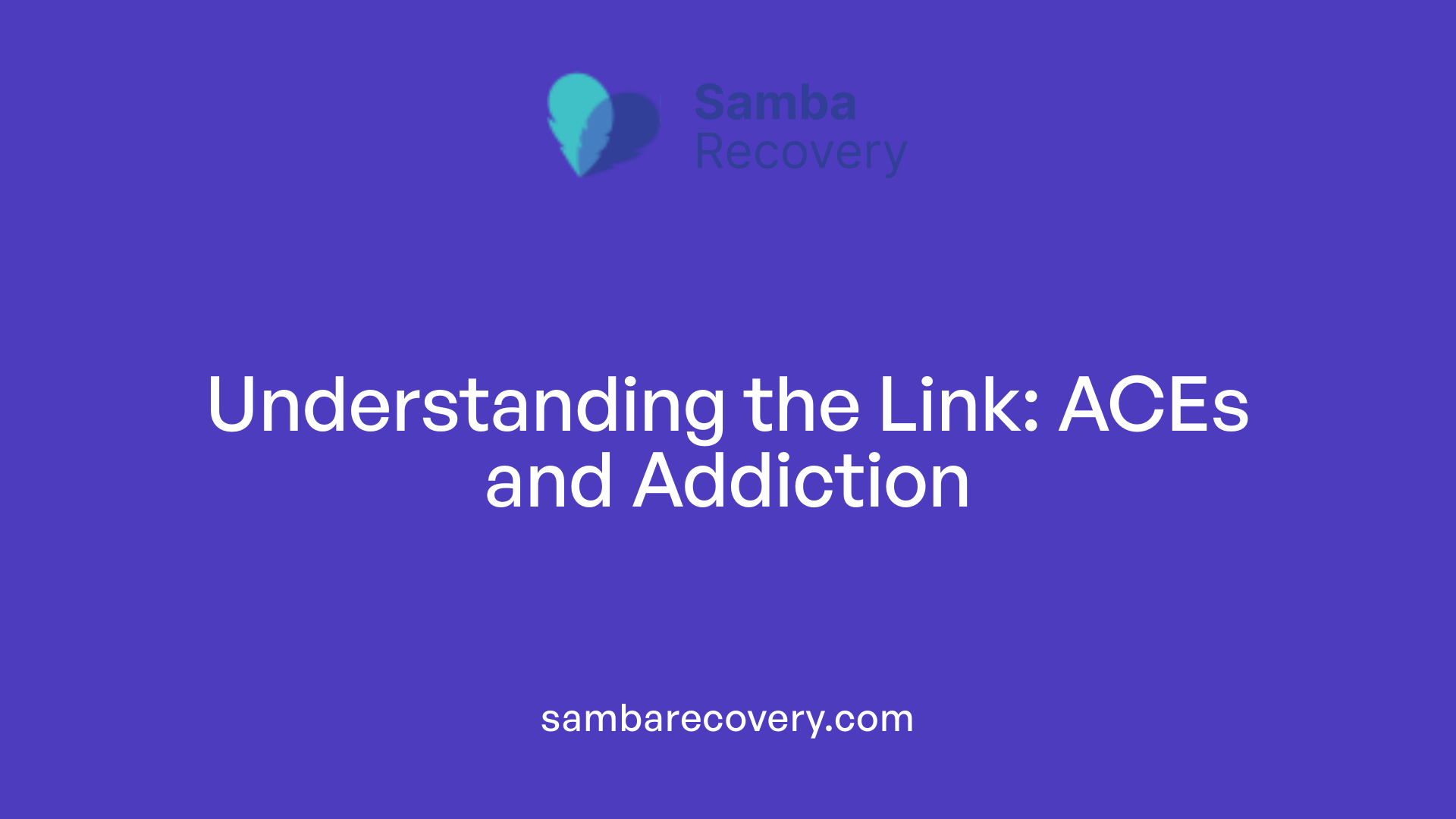
What is the relationship between adverse childhood experiences (ACEs) and addiction?
Research shows a strong link between ACEs and the likelihood of developing addiction later in life. Individuals with higher ACE scores are significantly more prone to drug and alcohol misuse. The trauma from abuse, neglect, or family dysfunction affects brain development, particularly in areas responsible for decision-making and emotional regulation.
Stress caused by ACEs can hijack the brain’s reward system, flooding it with dopamine and creating cravings that lead to substance-seeking behavior as a way to self-medicate. This cycle makes recovery more challenging but not impossible.
Factors like resilience and access to trauma-informed care can lessen these risks. Communities facing high levels of ACEs often experience social challenges, including poverty and violence, which exacerbate this cycle. Addressing ACEs through early prevention, supportive policies, and mental health services is vital to reducing addiction prevalence and improving overall health.
Understanding this connection allows healthcare providers and policymakers to design targeted interventions that promote resilience and healing, ultimately decreasing substance use disorders rooted in childhood trauma.
The Neurobiology of Childhood Trauma and Addiction
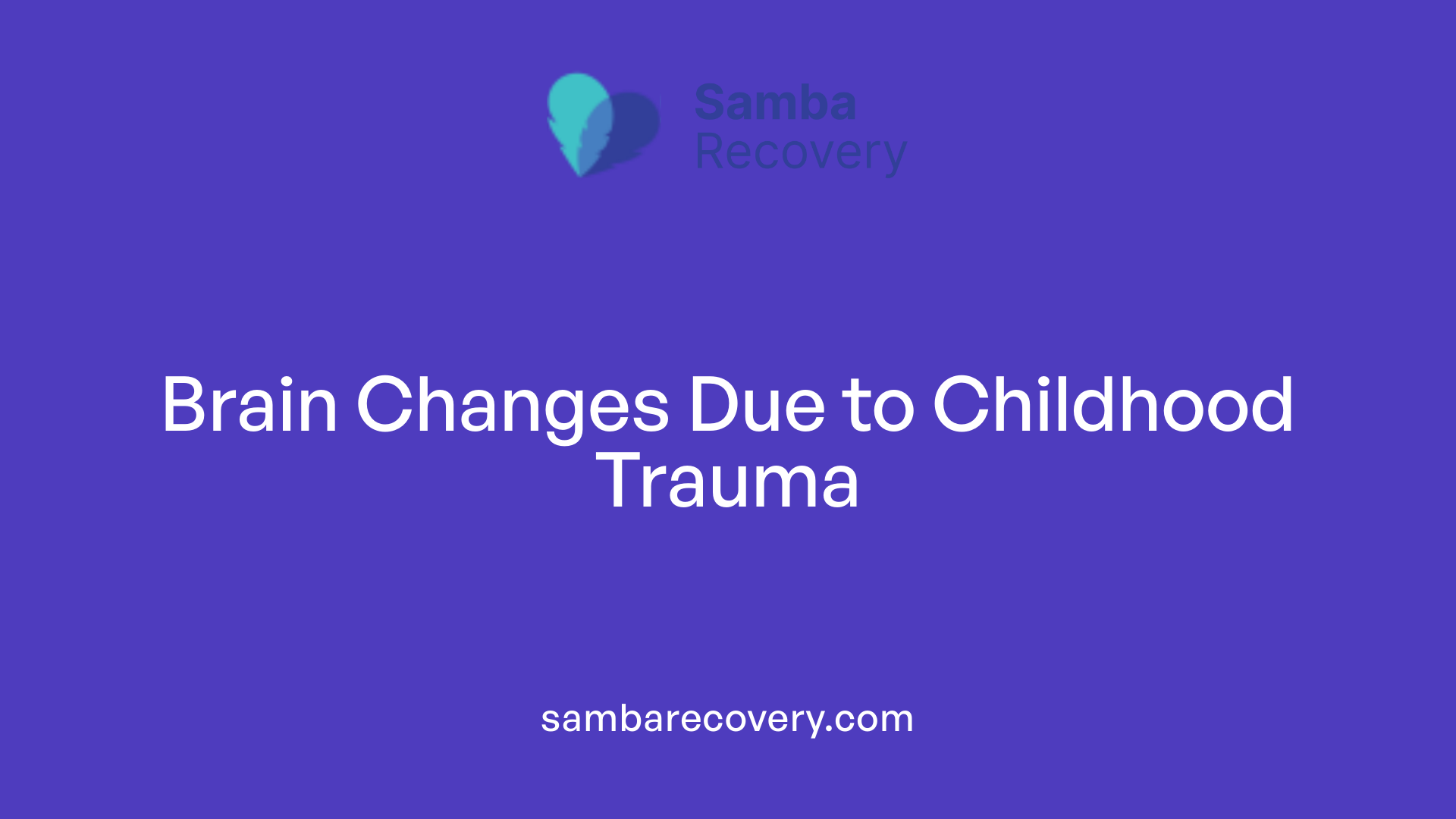
How do childhood trauma and adverse experiences influence brain development and physiological health?
Childhood trauma and adverse experiences can significantly alter the way the brain develops and functions, especially during sensitive growth periods. These early stressors have a disruptive effect on vital brain structures such as the hippocampus, which is crucial for memory and learning; the prefrontal cortex, responsible for decision-making and impulse control; and the amygdala, which processes emotions like fear and anxiety.
Prolonged exposure to stress activates the body’s stress response systems, notably the hypothalamic-pituitary-adrenal (HPA) axis. This activation leads to increased production of stress hormones like cortisol, which can cause structural changes in the brain over time. For instance, high stress levels may reduce hippocampal volume and impair white matter integrity, disrupting normal neural communication.
Additionally, trauma affects neurochemical systems, including dopamine and neurotransmitters involved in mood regulation. These changes can produce heightened amygdala responsiveness, making individuals more reactive to emotional stimuli and more prone to psychiatric conditions such as PTSD, depression, and anxiety.
Epigenetic modifications—changes in gene expression triggered by environmental factors—can also influence how trauma impacts brain development, potentially increasing vulnerability to health issues later in life. However, supportive relationships and positive experiences can foster neural resilience, allowing some individuals to recover or adapt despite early adversity.
These neurobiological alterations not only impair mental health but also contribute to physiological problems, including immune dysfunction and higher risks of chronic illnesses like heart disease and cancer. Though childhood trauma sets the stage for these health challenges, early intervention and trauma-informed therapies can help mitigate some of these effects and promote recovery.
Understanding these brain changes emphasizes the importance of addressing childhood trauma early, both to prevent neurodevelopmental damage and to improve long-term health outcomes.
Mechanisms Connecting ACEs to Substance Use Disorders
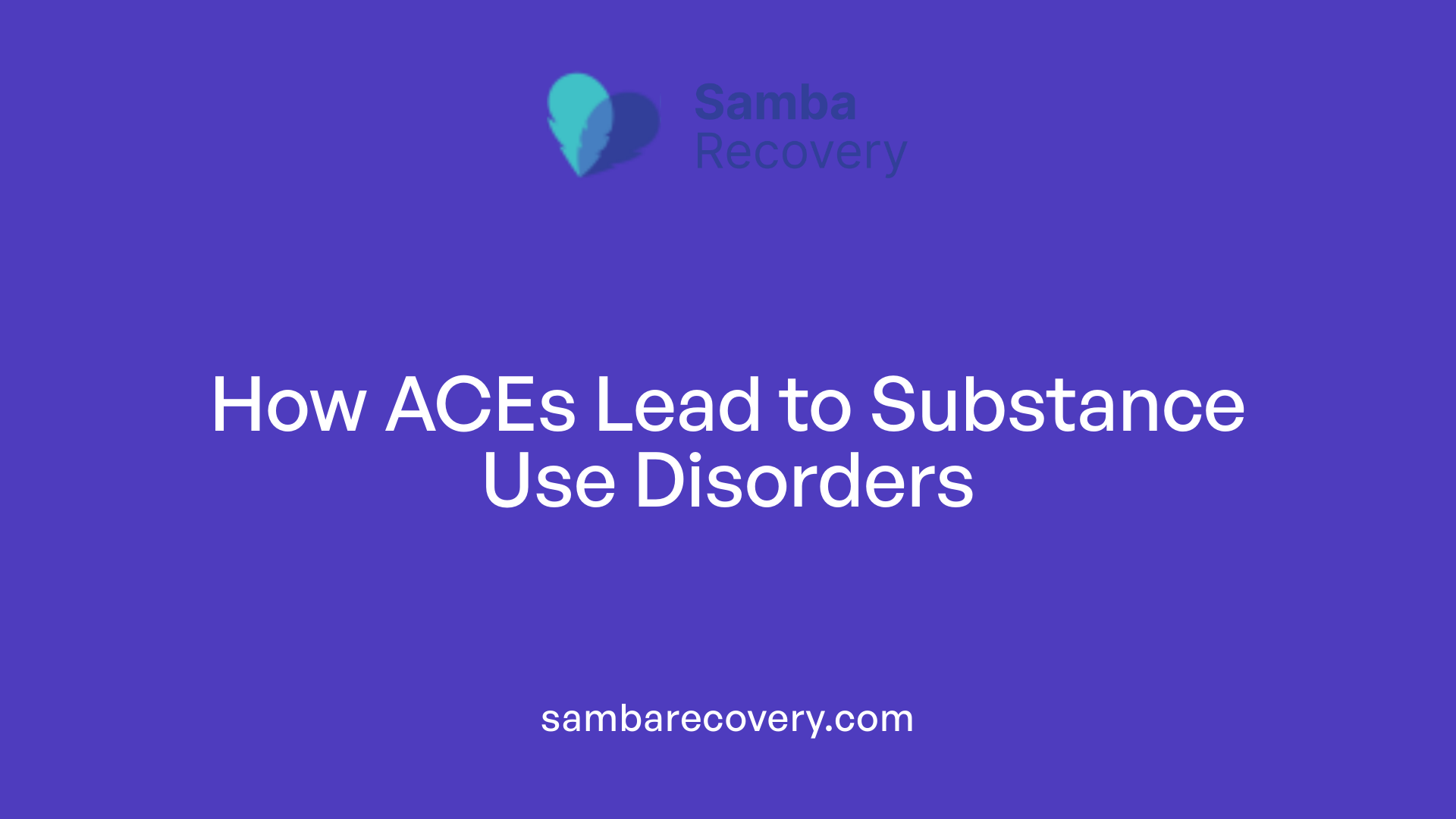
What do research findings suggest about the mechanisms linking adverse childhood experiences to substance use disorders?
Research indicates that adverse childhood experiences (ACEs) influence brain development and biological systems in ways that increase the likelihood of substance use disorders later in life. One primary mechanism involves alterations in neurobiological pathways, particularly dysregulation of the hypothalamic-pituitary-adrenal (HPA) axis, which controls our stress response. Chronic stress from ACEs can disrupt this system, leading to heightened reactivity to stress and emotional challenges.
Structural brain changes are also evident. Studies show modifications in brain areas critical for emotional regulation and reward processing, such as the prefrontal cortex and amygdala. These changes can impair self-control, increase impulsivity, and make individuals more prone to seek out rewarding stimuli like drugs or alcohol as coping strategies.
Psychologically, the self-medication hypothesis plays a significant role. Individuals who experience trauma early in life might turn to substances to soothe negative emotions, anxiety, or depression stemming from their adverse experiences. This maladaptive coping mechanism can develop into addiction over time.
Social influences and systemic inequalities further compound this risk. ACEs rooted in social disparities, such as poverty, discrimination, and community violence, expose individuals to environments where substance misuse is more prevalent, reinforcing the cycle of trauma and addiction.
Overall, the connection between ACEs and substance use disorders is multifaceted, involving changes in brain structure and function, psychological coping strategies, and social determinants. Addressing these interconnected pathways is essential for effective prevention and treatment strategies.
ACE’s Impact on Overall Health and Addiction Outcomes
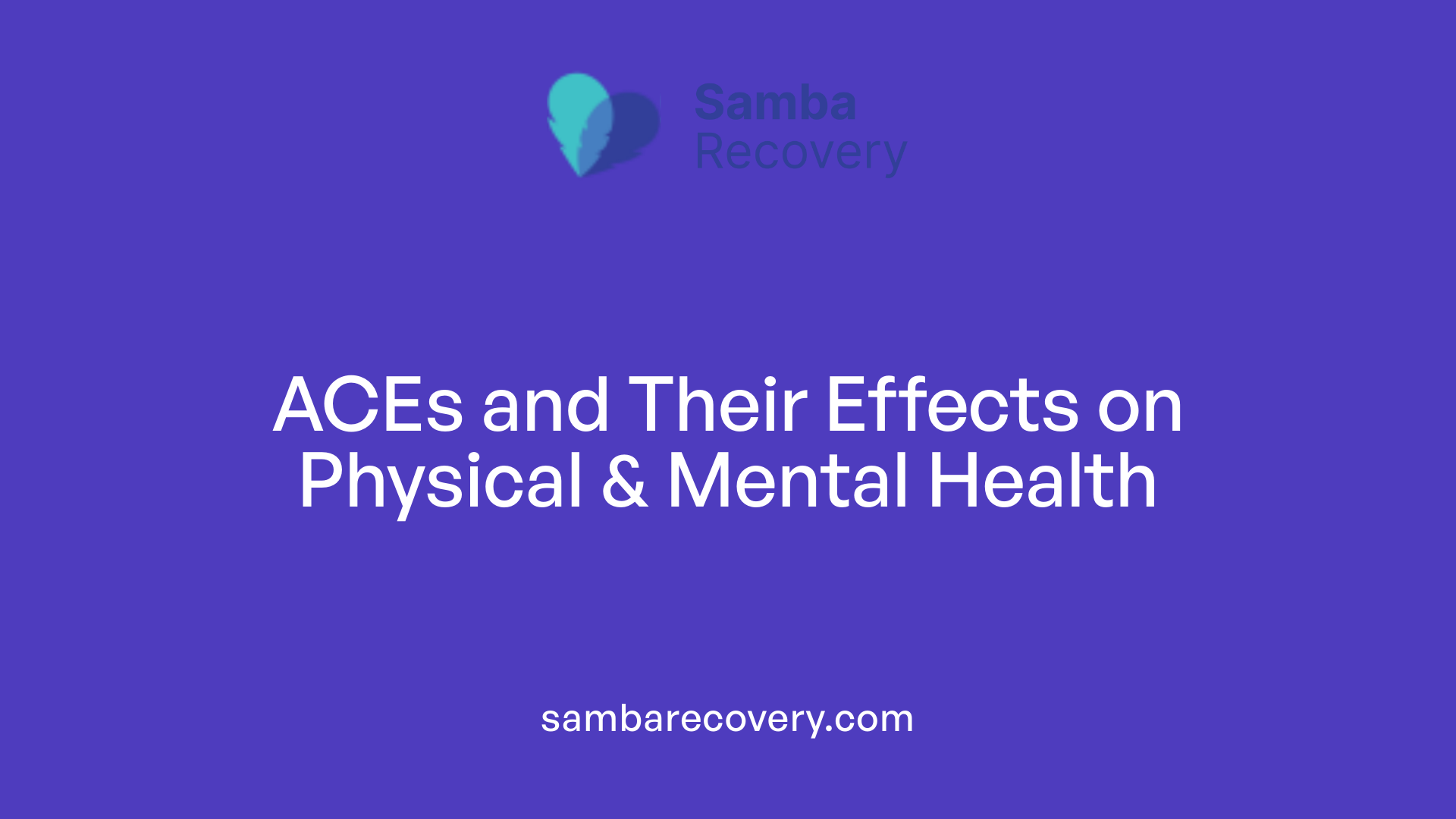
How do adverse childhood experiences impact physical health conditions?
Adverse childhood experiences (ACEs) are closely linked to a higher likelihood of developing serious physical health issues later in life. Studies show that individuals with an ACE score of four or more are nearly twice as likely to develop heart disease and lung cancer. The risk of early death from chronic illnesses increases with each additional ACE, with exposure to multiple traumas often reducing lifespan by up to 20 years.
The most common ACEs, such as parental separation and economic hardship, create stress that damages body systems. Toxic stress from these experiences impacts the immune system, cardiovascular health, and metabolic functioning, which can lead to conditions like hypertension, diabetes, and respiratory illnesses.
What are the mental health challenges associated with ACEs?
Children who experience ACEs are more susceptible to mental health issues, including depression, anxiety, and post-traumatic stress disorder (PTSD). The trauma affects brain development, especially in areas responsible for emotional regulation and decision-making, such as the limbic system and prefrontal cortex.
Higher ACE scores are correlated with a significantly increased risk of mood disorders. Adults with ACEs are 4.3 times more likely to develop substance use disorders (SUD), and those with higher scores face even greater risks. Emotional neglect, sexual, and physical abuse are major predictors of emotional disturbances, which can persist into adulthood.
How do ACEs influence behavioral health and risk behaviors?
Trauma from ACEs often leads to maladaptive coping strategies, including smoking, alcohol misuse, and illegal drug use. These behaviors are sometimes attempts to self-medicate mood and anxiety symptoms stemming from early trauma. Research supports that individuals with more ACEs are more likely to start substance use at a young age, and the risk of addiction increases with cumulative trauma.
Substance abuse can exacerbate health problems, creating a cycle of worsening physical and mental health. Specific ACE patterns, such as household substance dependency or witnessing violence, further increase the likelihood of engaging in risky behaviors.
| ACEs and Health Outcomes | Effects | Additional Details |
|---|---|---|
| Physical health conditions | Increased risk of heart disease, cancer, respiratory diseases | 4+ ACEs double heart disease risk |
| Mental health issues | Depression, anxiety, PTSD | 4.3-fold increased risk of SUD |
| Risk behaviors | Smoking, alcohol, drug misuse | Higher ACEs = earlier substance use |
Understanding these connections highlights the importance of trauma-informed care and early intervention to improve health and reduce addiction risks.
Psychological Factors: Depression, Resilience, and Their Role in Addiction
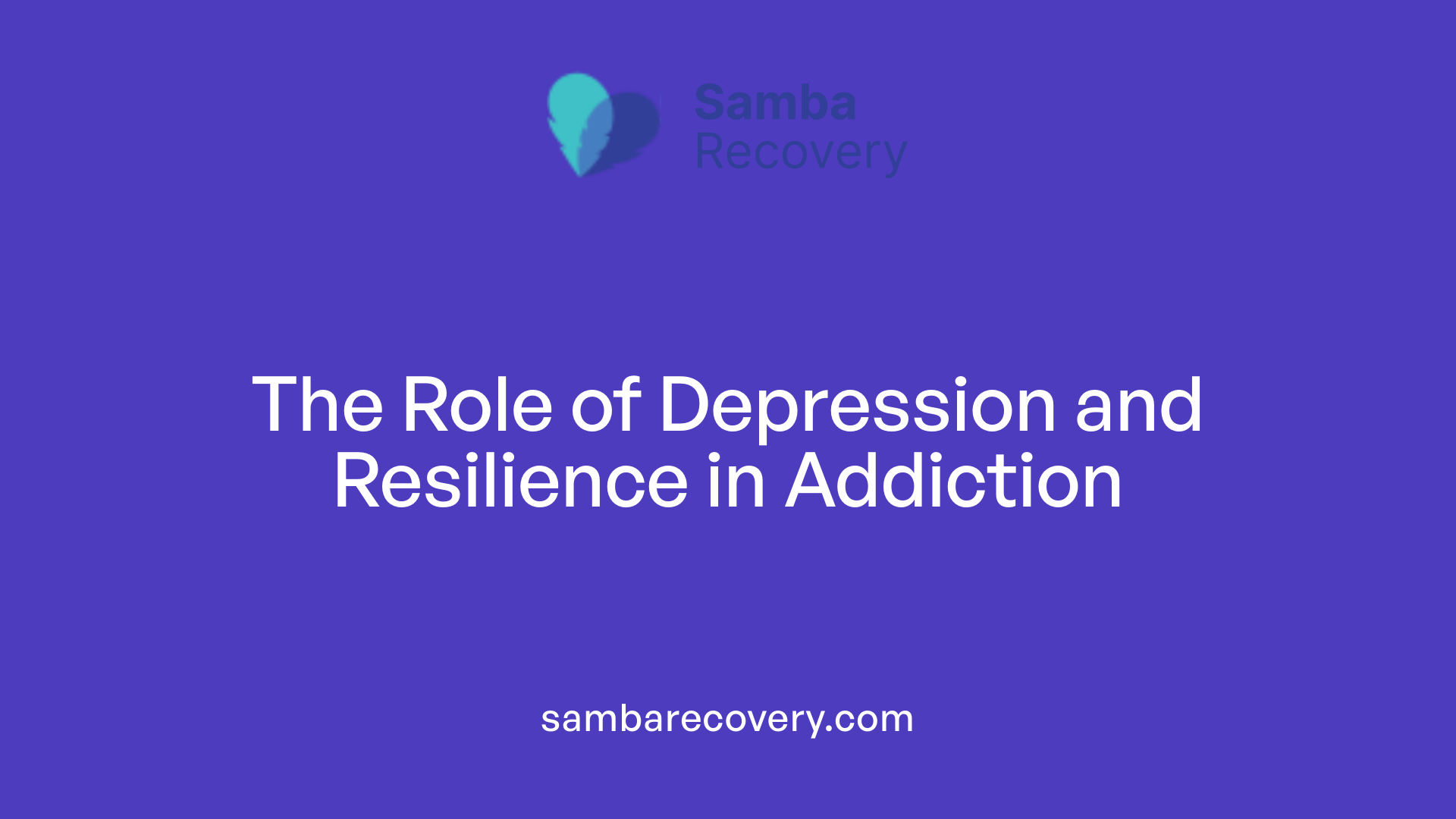
What role do psychological factors like depression and resilience play in the connection between ACEs and addiction?
Psychological well-being significantly influences how childhood adverse experiences, or ACEs, affect individuals later in life. Depression, a common mental health issue linked to ACEs, often acts as a mediator in the pathway to addiction. Children and adults with a history of trauma may develop depression because of disrupted emotional regulation, feelings of helplessness, or persistent stress. These emotional challenges increase vulnerability to substance use as a form of self-medication to numb emotional pain or manage distress.
On the other hand, resilience—the capacity to bounce back and adapt positively despite adversity—serves as a protective shield. Resilient individuals are better equipped to regulate their emotions, maintain social connections, and develop coping strategies that reduce the likelihood of turning to substances. Traits associated with higher resilience, such as optimism, social support, and effective problem-solving skills, can mitigate the impact of ACEs.
Research indicates that higher emotional intelligence (EI) enhances emotional regulation and social competence, further buffering against the development of addiction. Those with strong EI are more capable of managing negative emotions and are less likely to resort to drugs or alcohol as coping mechanisms.
However, the scientific exploration of these pathways has limitations. Many studies face challenges such as inconsistent definitions of resilience, small sample sizes, and a lack of long-term, longitudinal data. This makes it difficult to definitively map how exactly depression and resilience influence the link between ACEs and addiction over time.
In summary, addressing psychological factors and building resilience are vital strategies in reducing the risk of substance use in those with traumatic childhood histories. Interventions that focus on emotional regulation, enhancing social support networks, and fostering resilience could profoundly impact recovery and prevention efforts.
Public Health Strategies and the Path Forward
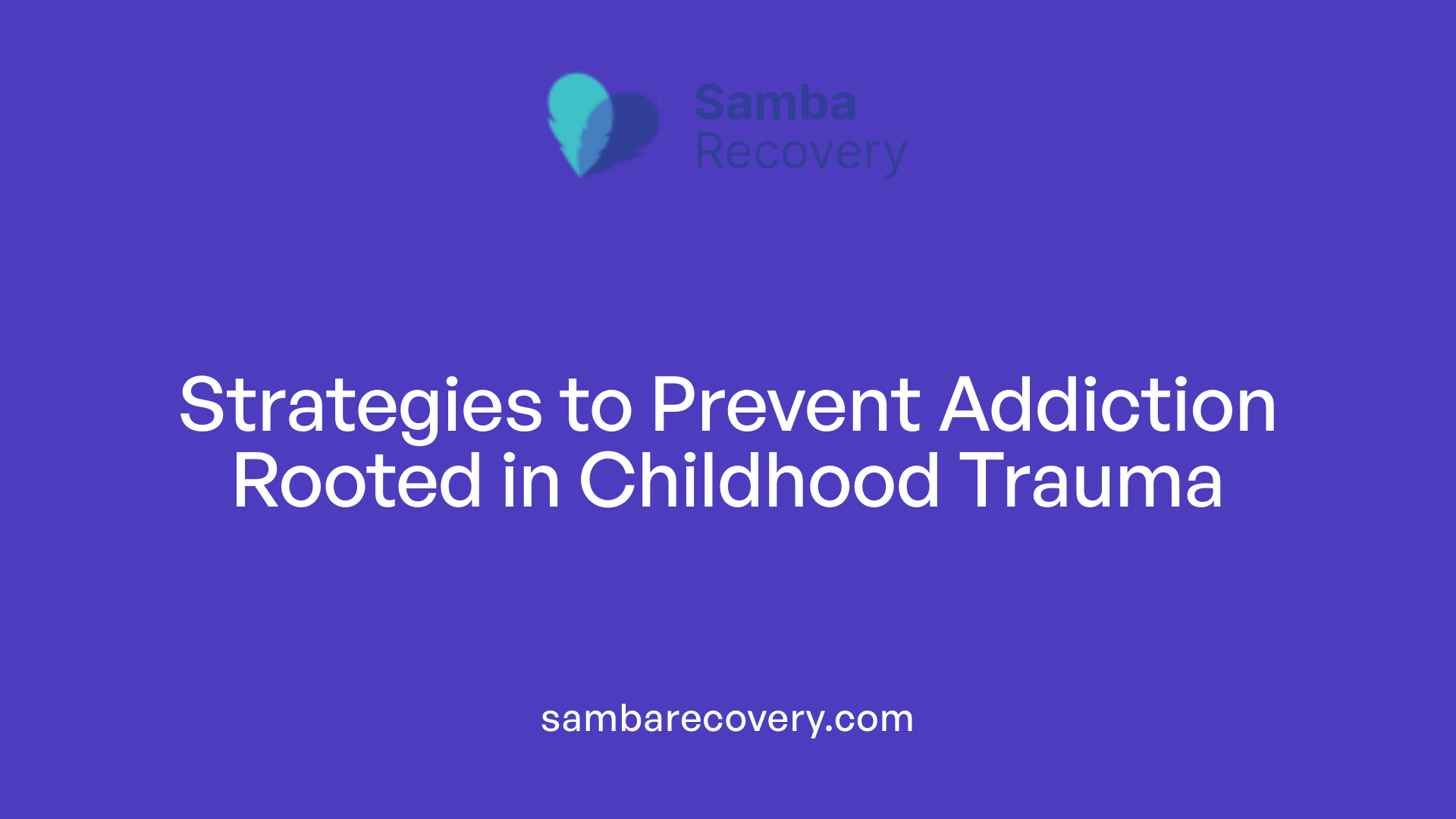
What are the public health strategies for addressing addiction rooted in childhood trauma?
Addressing addiction linked to childhood trauma requires a comprehensive approach centered around trauma-informed care. This strategy involves assessing and enhancing organizational capacity, training staff in trauma recognition, and securing strong leadership commitment. Creating environments that are safe, respectful, and culturally responsive is crucial for empowering individuals and communities.
Screening for adverse childhood experiences (ACEs) plays a significant role in identifying trauma early. Tailored interventions can then be developed, targeting the specific needs of those affected by trauma. Collaborations across healthcare, education, social services, and justice sectors foster a supportive network that reinforces preventive and therapeutic efforts.
Moreover, public health policies focus on reducing childhood adversity and social inequalities that contribute to trauma. Prevention programs aimed at strengthening family stability, economic security, and community safety are essential. Continuous evaluation and community engagement help refine these strategies, ensuring they are effective and equitable.
Systemic organizational change, driven by leadership and evidence-based practices, sustains trauma-informed initiatives. Through these combined efforts, public health can mitigate the long-term impacts of childhood trauma on substance abuse and promote healthier, more resilient communities.
Transformative Approaches to Healing and Prevention
Understanding the profound role of adverse childhood experiences in shaping addiction journeys underscores the necessity of trauma-informed prevention and treatment strategies. By recognizing trauma’s neurological and psychological footprints, healthcare providers, policymakers, and communities can develop more effective interventions that foster resilience, reduce stigma, and target the root causes of addiction. Building supportive environments and implementing early intervention policies are vital steps toward breaking the cycle of trauma and substance misuse, ultimately leading to healthier individuals and communities. Embracing an empathetic, science-backed approach is essential for addressing one of the most challenging public health crises of our time.
References
- Connecting the Dots: ACEs and Addiction – AFMC.org
- Adverse childhood experiences and their association with …
- [PDF] Adverse Childhood Experiences and the Role of Substance Misuse …
- Does Childhood Adversity Lead to Drug Addiction in Adulthood? A …
- How adverse childhood events can exacerbate substance use
- ACEs: Connecting Addiction and Trauma
- Associations and mediating factors between adverse childhood …






